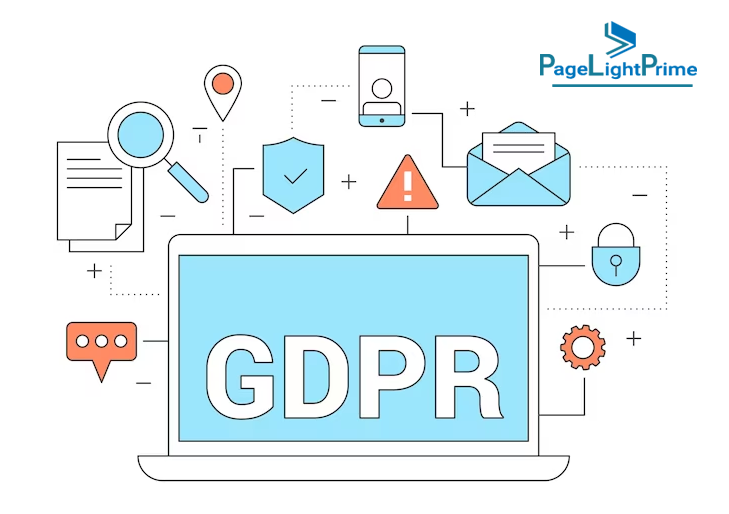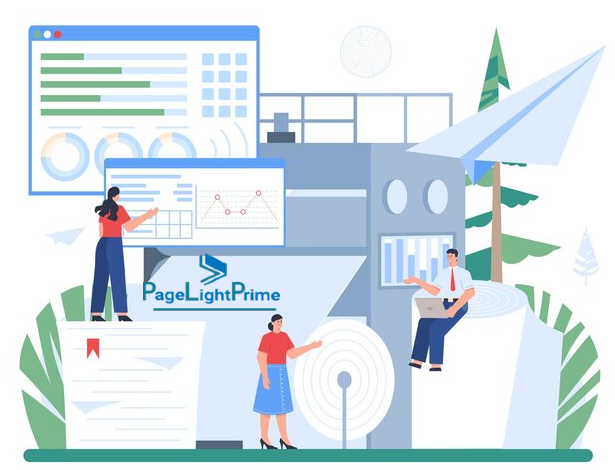Legal Regulations: Navigating Compliance in the Cloud
The legal industry operates within a highly regulated environment, and law offices must be diligent in ensuring that their adoption of cloud-based solutions aligns with these regulations. Here are some key considerations:
Written by Knowledge Team, posted on September 27, 2023

Data Privacy Regulations
GDPR (General Data Protection Regulation)
GDPR applies not only to European Union citizens’ data but also to any organization worldwide that processes their data. This regulation places strict requirements on the processing and protection of personal data, including client information. When using cloud services, ensure that your provider offers GDPR-compliant data processing agreements and robust data protection measures, including encryption of data in transit and at rest.
HIPAA (Health Insurance Portability and Accountability Act)
If your legal practice deals with healthcare-related cases, HIPAA regulations come into play. HIPAA governs the handling of protected health information (PHI). It’s crucial to select cloud providers with HIPAA compliance measures, including encryption, access controls, and audit trails for PHI data.
CCPA (California Consumer Privacy Act)
If your law office deals with Californian clients, CCPA imposes strict requirements for the handling of personal data, like GDPR. Ensure your cloud provider complies with CCPA regulations when processing data of Californian residents.

Attorney-Client Privilege

Maintaining Confidentiality
Legal professionals have a duty to protect the confidentiality of attorney-client communications. When using cloud-based services, ensure that your provider has robust security measures in place to safeguard privileged information, including strong access controls, multi-factor authentication, and encryption.
Secure Document Management
Implement secure document management practices within your cloud-based system to categorize and protect attorney-client privileged documents effectively. Ensure that these documents cannot be accidentally shared or accessed by unauthorized personnel.
Data Retention and Preservation
E-Discovery Rules
When it comes to litigation, law firms must adhere to e-discovery rules, which require the preservation and production of electronic documents and communications. Ensure that your cloud-based solutions allow for the proper identification, retention, and retrieval of relevant data in compliance with e-discovery rules.
Chain of Custody
Establish a clear chain of custody for electronically stored information (ESI) within your cloud-based systems. This ensures that data remains unaltered and admissible in legal proceedings.

Jurisdictional Issues
Data Storage Locations
Be aware of where your cloud provider stores data. Different jurisdictions have varying laws and regulations regarding data access and privacy. Ensure that your cloud provider’s data centers align with your legal obligations.
International Data Transfer Agreements
When dealing with the global nature of cloud-based solutions, it’s essential to address international data transfer agreements. Different regions and countries have varying laws and regulations regarding data access and privacy, and navigating these complexities is crucial to maintaining compliance.
Standard Contractual Clauses (SCCs)
One of the most widely recognized mechanisms for international data transfers is the use of Standard Contractual Clauses (SCCs), also known as Model Clauses. These are pre-approved contracts provided by data protection authorities that establish a legal framework for data transfers between entities in different jurisdictions. Ensure that your cloud service provider offers SCCs or incorporates them into their agreements, as this is a widely accepted method for ensuring data protection during international transfers.
Binding Corporate Rules (BCRs)
In cases where your organization operates in multiple jurisdictions and needs to transfer data internally within the corporate group, Binding Corporate Rules (BCRs) can be an effective solution. BCRs are a set of binding rules for data protection that apply within multinational companies, allowing for the transfer of personal data between different entities within the group. These rules must be approved by relevant data protection authorities.
EU-US Privacy Shield (No Longer Valid)
Note that the EU-US Privacy Shield was invalidated by the European Court of Justice in 2020. Therefore, relying on this framework is not advisable for ensuring compliance with European data protection laws.
Approved Data Transfer Mechanisms
In addition to SCCs and BCRs, be aware of other approved data transfer mechanisms in the regions where your clients’ data originates or resides. For instance, some countries may have specific agreements or certifications that facilitate data transfers.
Privacy Impact Assessments (PIAs)
Conduct Privacy Impact Assessments when transferring data internationally. PIAs, help you evaluate the risks associated with data transfers and demonstrate your commitment to data protection. They may be required by some data protection authorities as part of your compliance efforts.
Consult Legal Experts
Given the complexity of international data transfers and the evolving nature of data protection laws, it’s advisable to consult with legal experts who specialize in international data privacy. They can provide tailored guidance to ensure your data transfer practices align with all applicable regulations.
Stay Informed
International data transfer regulations are subject to change. Stay informed about developments in data protection laws in the regions you operate in or transfer data to. This proactive approach will help you adapt to new requirements and maintain compliance.
Regulatory Compliance
Financial Industry Regulations
If your law office deals with financial matters, consider financial industry regulations like SEC, FINRA, or banking-specific regulations. These may impose additional compliance requirements on your cloud-based systems.
AML (Anti-Money Laundering) Regulations
If your law office handles financial transactions, be aware of AML regulations. These require you to implement robust due diligence processes within your cloud systems to detect and report suspicious financial activities.

Contractual Agreements

Review Service Level Agreements (SLAs)
Carefully review the SLAs of your chosen cloud provider. These agreements should specify data ownership, access, and retention policies. Ensure that they align with your legal obligations and provide a clear framework for compliance, including terms related to data breach notification, incident response, and data portability.
Data Breach Notification
Ensure your SLAs address the protocol for data breach notification, specifying the timeframe and procedures for reporting any data breaches or security incidents.
Incident Response Plan
A Well-Defined Strategy
In addition to addressing data breach notifications, it is essential to establish a meticulously outlined incident response strategy for potential security incidents. This strategy should encompass contact details for relevant stakeholders, both within your organization and your cloud service provider. Ensure that the plan comprehensively covers incident identification, containment, eradication, recovery, and post-incident analysis to bolster security measures.
In Case of a Security Incident
When faced with a security incident, an immediate and well-structured response becomes paramount. Legal firms must articulate measures for containment and eradication, including steps such as (1) detailing containment tactics such as isolating affected systems, (2) elucidating the process for completely eliminating the threat, including the removal of malicious code, (3) addressing communication, role assignments, and ongoing monitoring, (4) specifying procedures for legal and regulatory reporting, and (5) placing significant emphasis on documentation and gathering insights to drive continuous improvement.

Regular Audits and Assessments

Ongoing Compliance Monitoring
Compliance is an ongoing process. Regularly audit and assess your cloud-based systems to ensure continued adherence to legal regulations. This may involve internal assessments or third-party audits to verify compliance.
Vulnerability Assessments
Conduct regular vulnerability assessments of your cloud-based systems to identify potential weaknesses that could expose sensitive client data to security risks.
Employee Training
Data Security Education
Train your legal team and staff on data security best practices, including the safe use of cloud-based tools. Employees must understand their role in maintaining compliance and protecting sensitive client data.
Remote Work Security
Given the prevalence of remote work, provide training on secure remote work practices when using cloud-based tools to maintain client data confidentiality outside of the office.

In the rapidly evolving landscape of cloud technology, legal offices must navigate a complex web of regulations and compliance requirements to ensure the confidentiality, security, and legal integrity of their clients’ data. The adoption of legal cloud-based solutions can greatly enhance efficiency and collaboration, but it also brings with it a responsibility to uphold the highest standards of data protection and legal compliance.
Conclusion
In the rapidly evolving landscape of cloud technology, legal offices must navigate a complex web of regulations and compliance requirements to ensure the confidentiality, security, and legal integrity of their clients’ data. The adoption of legal cloud-based solutions can greatly enhance efficiency and collaboration, but it also brings with it a responsibility to uphold the highest standards of data protection and legal compliance.
From data privacy regulations such as GDPR, HIPAA, and CCPA to attorney-client privilege, data retention and preservation, jurisdictional issues, international data transfer agreements, and various compliance aspects, we’ve provided insights to help you make informed decisions.
However, it’s essential to remember that compliance is not a one-time task but an ongoing commitment. Staying informed about changes in data protection laws, regularly auditing and assessing your systems, and ensuring that your team is well-trained in data security are all crucial components of maintaining compliance.
Legal compliance in the cloud is a shared responsibility between your law office and your cloud service provider. By working together, you can create a secure and compliant environment that safeguards client information and minimizes the risk of legal and financial consequences.
In conclusion, embracing cloud-based solutions while upholding legal regulations is a challenging but necessary endeavor for modern legal practice. By remaining vigilant, seeking expert guidance when needed, and staying adaptable in the face of evolving requirements, you can harness the benefits of the cloud while maintaining the trust and confidence of your clients. Your commitment to compliance is not just a legal obligation; it’s a fundamental aspect of providing exceptional legal services in the digital age.
